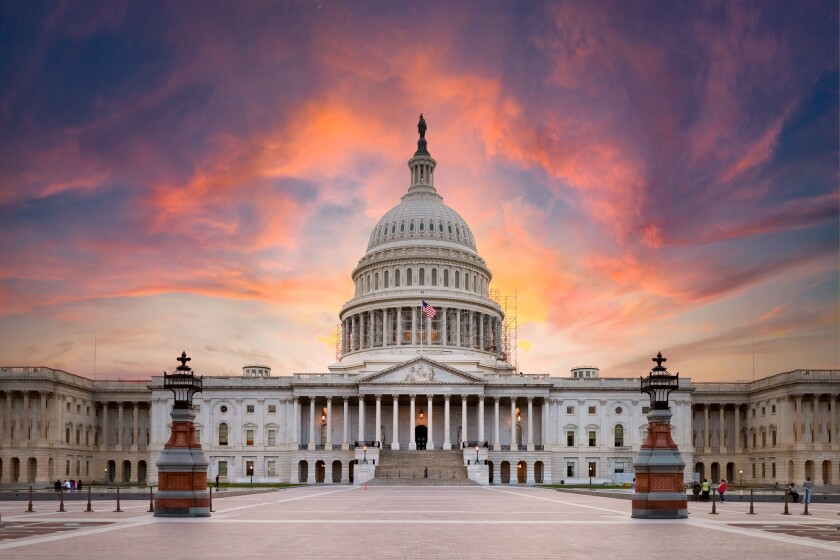Law firms are seeing a rise in labour and employment counselling work following the Trump administration’s decision to axe DEI programmes.
Clients with federal government contracts and SMEs are urgently seeking advice on risk mitigation strategies as they reassess their DEI commitments, say lawyers at Husch Blackwell and Baker McKenzie. They also expect employment litigation work to increase.
“The reaction has been significant,” says Erik Eisenmann, a partner in the financial services and capital markets team at Husch Blackwell in Milwaukee.
“[They want to know] what steps they should be taking to revisit or alter the terms of their DEI programmes so that they remain legally compliant and are not on the prosecutors’ radar.”
Robin Samuel, partner and head of the US labour and employment team at Baker McKenzie in Los Angeles, says that most clients are cataloguing and reviewing their initiatives with the assistance of counsel to ensure their efforts are legal and properly crafted.
“Employment counselling practices are seeing the most immediate surge in requests for help as clients navigate the new regime,” he tells IFLR. “Employment litigation practices will start to see a significant uptick in reverse discrimination cases, as well as whistleblower [and] False Claims Act cases, as individual employees assert claims, and the courts sort out which portions of the executive orders will survive judicial scrutiny.”
It was back on January 20 that the White House issued the first of two executive orders to scrap DEI programmes, noting those plans “demonstrated immense public waste and shameful discrimination”.
The first executive order, which focuses on DEI in the federal government, was followed by a second mandate to terminate DEI in the government contractors and private employer sector.
As Samuel notes, the executive orders are now being challenged in court following a nationwide preliminary injunction issued by a federal district judge in Maryland on February 21.
Samuel says that from here “the litigation over the executive orders will likely continue all the way to the US Supreme Court, resulting in clients needing further advice as the law quickly evolves”.
Has “discriminatory” gained a new meaning?
The January 21 directive states that DEI policies have diminished the importance of individual merit, aptitude, hard work and determination when selecting people for jobs and services. It adds that “pernicious discrimination” has given more importance to “how people were born instead of what they were capable of doing”.
That’s why some of the language or the quotas acceptable in companies’ DEI programmes could now face scrutiny and lead to prosecution.
Eisenmann points out three hiring practices that carry high risk: hiring or promoting based on protected characteristics like race or gender; implementing exclusive internal programmes for protected groups; and setting strict quotas or percentage targets for hiring and promotion.
“Risk mitigation involves ensuring that DEI programmes’ language aligns with legal requirements – clarifying, for example, that sponsorship programmes historically aimed at underrepresented groups are open to all employees while still promoting equity,” he explains. “The key is aligning internal and external messaging to avoid misinterpretation by regulators.”
Both Eisenmann and Samuel stress that underlying anti-discrimination laws – primarily Title VII of the Civil Rights Act of 1964 – remain unchanged.
Therefore, even before January’s executive orders, it was unlawful to base employment decisions on protected characteristics.
Eisenmann notes, however, that proponents of affirmative action have argued that certain preferences are legally justified when aimed at remedying historical discrimination.
But in light of recent developments, he says “employers now face greater scrutiny and must be prepared to defend such programmes, even if they benefit historically underrepresented groups”.
He adds: “These initiatives are increasingly high-risk, as they may be challenged as discriminatory.”
Litigation risks on the rise
With increased regulatory scrutiny, businesses must prepare for a rise in litigation.
“There is a lot of talk about claims being asserted against government contractors by private bounty hunters under the federal False Claims Act (FCA),” says Samuel.
“But the reality is that the burden of proof for FCA claims is high, and most plaintiffs are unlikely to be able to meet the standard to move forward with claims, even if the executive orders regarding government contractors survive constitutional scrutiny in court.”
He adds that it is more likely that the Equal Employment Opportunity Commission will target some of the high-profile DEI proponents in the private sector to send a message about what DEI initiatives the agency considers to be unlawful.
“Claims by individual employees are also likely to increase, both as a result of DEI programmes cutbacks and by employees asserting reverse discrimination,” he warns.
For Eisenmann, SMEs are particularly vulnerable, fearing legal challenges and negative press. Those firms, however, are taking proactive steps to mitigate risks.
Public companies face even greater scrutiny, even though shareholders and board members have increasingly been questioning the return on investment for DEI initiatives, he says.
'A sea change'
Given the shifting legal and regulatory landscape, the future of DEI programmes is likely to involve both rethinking and reframing.
Eisenmann says that the percentage of total businesses that currently have DEI programmes in place will likely reduce as a result of the executive orders.
He adds that businesses are likely going to rethink or reframe the way they name their DEI programmes and the terminology they use.
Simon says the executive orders “unquestionably” constitute a “sea change” in the way US private employers view such programmes and initiatives.
“Employers will likely take a more cautious and circumspect approach to such initiatives moving forward,” he notes. “However, I do not expect most employers to abandon DEI altogether – this will be more of a right sizing than elimination.”

